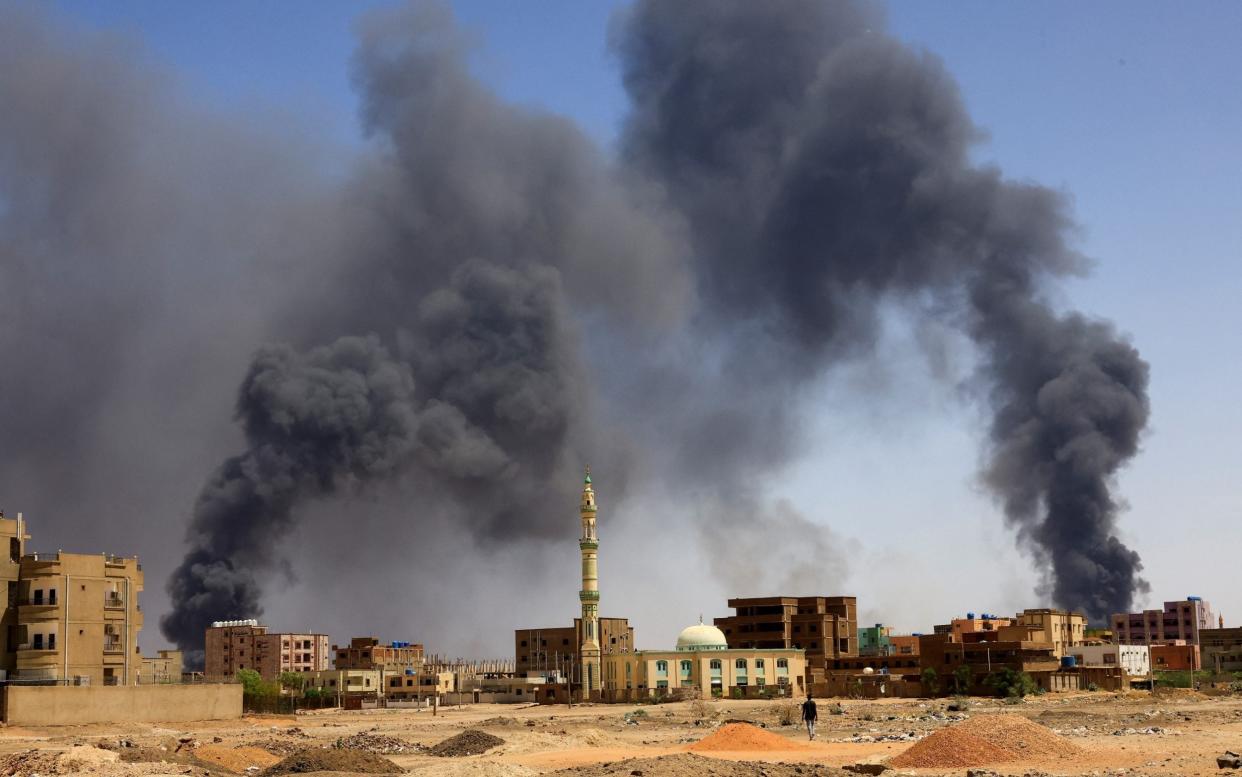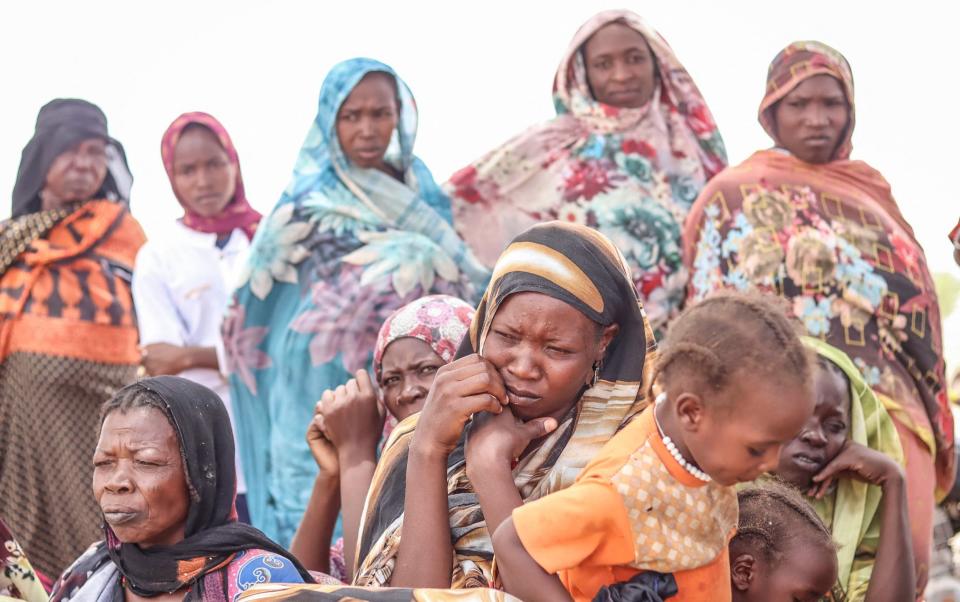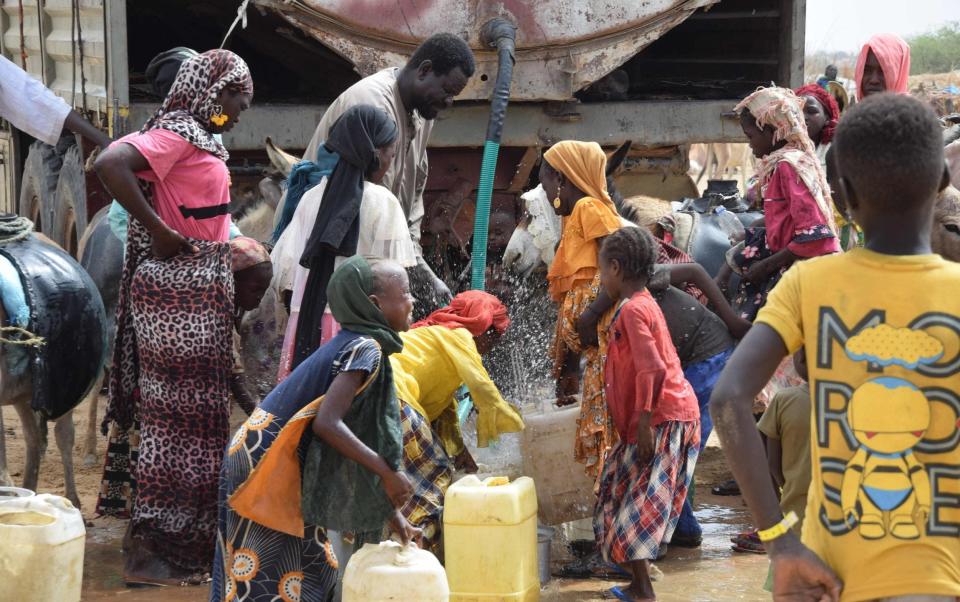Sudan descends into fierce fighting despite latest truce

Fierce fighting broke out again between Sudan’s army and paramilitaries on Monday despite the formal extension of a truce, as the United Nations warned the humanitarian situation had reached “breaking point”.
More than 500 people have been killed since battles erupted on April 15 between Sudan’s de facto leader Abdel Fattah al-Burhan, who leads the regular army, and his ex-deputy Mohamed Hamdan Daglo, who commands the powerful paramilitary Rapid Support Forces (RSF).
Millions of Sudanese around the capital have been hiding in their homes with dwindling food, water, and electricity while jets on bombing raids have drawn heavy fire from anti-aircraft guns.
“Warplanes are flying over southern Khartoum and anti-aircraft guns are firing at them,” said one resident, while another witness told AFP he was also hearing “loud gunfire” in the area.
Mr Burhan and Mr Daglo have agreed multiple, poorly observed ceasefires, and extended the latest formal truce on Sunday by 72 hours, with each side repeatedly blaming the other for the frequent violations.

Millions of Sudanese are trapped in the country, where aid workers are among the dead, humanitarian facilities have been looted, and foreign aid groups have been forced to essentially halt all aid operations.
Martin Griffiths, a top UN humanitarian official, said on Sunday that he was heading to the region to help “bring immediate relief to the millions of people whose lives have been turned upside down overnight”.
“The humanitarian situation is reaching breaking point,” he said. “Goods essential for people’s survival are becoming scarce in the hardest-hit urban centres, especially Khartoum.
“The cost of transportation out of the worst-hit areas has risen exponentially, leaving the most vulnerable unable to relocate to safer areas.”
Fighting triggers exodus
Some 50,000 people have fled the raging conflict, seeking refuge in neighbouring countries including Chad, Egypt, and the Central African Republic, the UN's refugee agency said.
The fighting has also triggered an exodus of foreigners and international staff, with countries the world over launching evacuations by land, sea, and air.
Mr Daglo’s RSF is descended from the Janjaweed unleashed by former strongman head Omar al-Bashir in Sudan’s Darfur region, leading to war crimes charges against Mr Bashir and others.
Further complicating the battlefield, Central Reserve Police were being deployed across Khartoum to “protect citizens’ properties” from looting, the Sudanese police said, confirming an army statement.
The RSF had warned police against joining the fight.
The US Treasury Department last year sanctioned the Central Reserve for “serious human rights abuses” related to its use of “excessive force” against pro-democracy protests after the October 2021 coup that brought Mr Burhan and Mr Daglo to power.
At least 528 people have been killed and almost 4,600 people wounded in the violence, according to Sudan’s health ministry, but the death toll is feared to be far higher.
Fighting has spread across Sudan, especially in the long-troubled Darfur region, where witnesses reported intense conflict and looting.
At least 96 people were reported killed in El Geneina, West Darfur, the UN said.

The UN World Food Programme has warned the unrest could plunge millions more into hunger in a country where 15 million people were already in need of aid to stave off famine.
Only 16 per cent of health facilities are functioning in Khartoum, according to the World Health Organisation, with many facilities shelled.
On Sunday, a first Red Cross plane brought eight tonnes of humanitarian aid from Jordan to Port Sudan, which is so far untouched by the fighting and has served as an evacuation hub.
The aid included surgical material and medical kits to stabilise 1,500 patients.
Regional powers have joined negotiations to help end the violence.
An envoy of Mr Burhan’s met on Sunday in Riyadh with Prince Faisal bin Farhan, the Saudi Arabian foreign minister, who called for the restoration of calm in Sudan, his ministry said.
Egypt has called an Arab League meeting of its permanent delegates on Monday to discuss the “situation in Sudan”.

